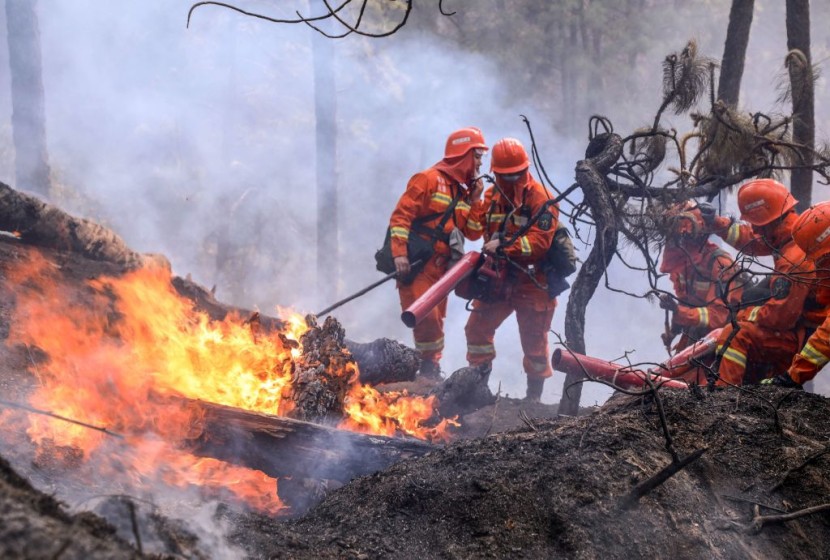
Afghanistan and China suffered from the onslaught of extreme weather caused by climate change, affecting thousands of people in both Asian countries.
According to officials, the Afghanistan flood has swept away thousands of homes, murdered at least 95 people, injured hundreds more, and killed at least 95 people, per a CNN report.
Authorities reported that the killings occurred over 10 days in 10 different regions as the nation struggles with an economic and humanitarian crisis that has been made worse by Western sanctions put in place when the Taliban returned to power last year.
In addition, Pakistan's neighbor is currently experiencing persistent flooding. According to the Disaster Management Authority there, since mid-June flooding has claimed the lives of 820 people, damaged or destroyed roughly 320,000 homes, and compromised 129 bridges.
Mawlawi Sharafuddin Muslim, the deputy minister of disaster management of Afghanistan, told CNN that while humanitarian organizations pledged relief supplies and emergency food assistance had been sent to several flood-affected districts, these might not be enough.
Muslim noted that the affected families "that include women and children" have no shelter to dwell in. "All their agricultural farms and orchards have either been completely destroyed or their harvest has been damaged," he added.
Before the Afghanistan flood, several natural disasters and severe weather conditions have recently hit the country, including an earthquake in June that claimed more than 1,000 lives.
Heat Wave Burns Forests in China
Meanwhile, a record-breaking heat wave has been raging for weeks in the city of Chongqing in southwest China.
The fires recently raged through forests and mountains around the megacity, as thousands of emergency workers are working to contain quickly spreading flames caused by China heat wave.
Residents of downtown Chongqing tweeted images of flaming embers from the fires reaching their balconies, while others complained on social media that they could smell smoke inside their homes.
According to local authorities, wildfires have started in numerous remote locations since August 18, CNN reported.
An update on Tuesday AM stated that no casualties have yet been reported in the city of more than 32 million residents.
State-run Xinhua news agency reported more than 1,500 people were transferred to safe areas. Around 5,000 firefighters, police, local officers, volunteers, and seven firefighting aircraft were attempting to extinguish the flames.
Global Warming Threatens Marine Life
As humans attempt to adapt to climate change, the world's oceans have been burdened by the excessive warming brought on by the greenhouse effect.
The oceans absorb "more than 90% of the excess heat" attributed to emissions, according to data from the National Oceanic and Atmospheric Administration.
Rising atmospheric carbon dioxide concentrations have been linked in numerous studies to ocean acidification, which affects sea life.
According to a study released Monday by Nature Climate Change, nearly all marine species would be at high or critical risk of extinction in less than 80 years if global greenhouse gas emissions continue on their current track.
The study concluded that "climate-driven temperature changes are the most severe" at that level.
Findings reveal that "nearly 90% of 25,000 species are at high or critical risk of extinction" if greenhouse gas emissions continue at the current rate.
The data were released after the United States passed the Inflation Reduction Act, the landmark legislation intended to reduce greenhouse gas emissions and expedite the shift to renewable power sources, according to Yahoo! News.








